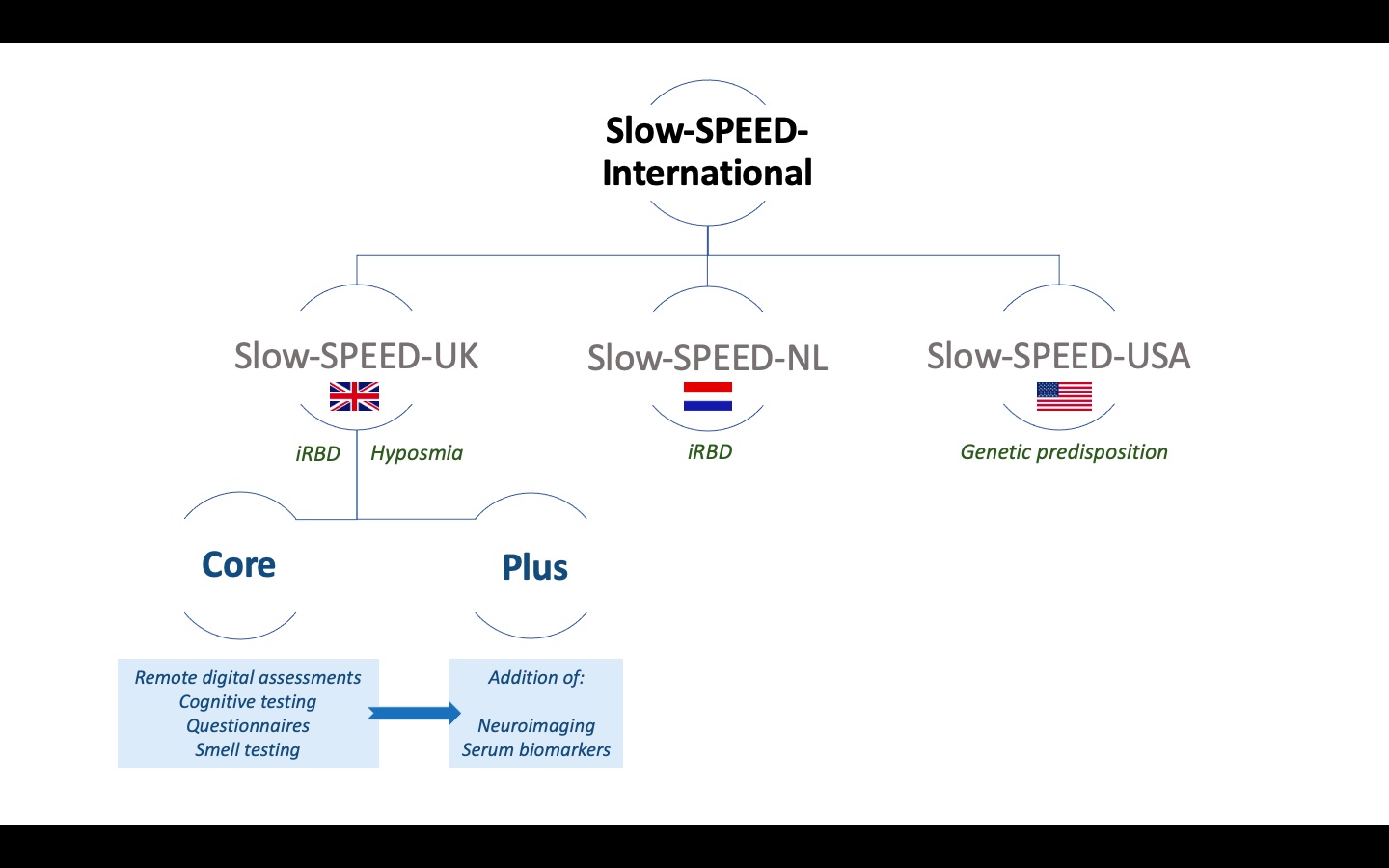Category: Parkinson’s Disease: Clinical Trials
Objective: Slow-SPEED-UK is a randomized controlled trial investigating the effects of an app-based exercise program on individuals at higher risk of Parkinson’s Disease (PD).
Background: PD diagnosis is based on the recognition of ‘hallmark’ motor symptoms. However, these correlate to a relatively advanced level of neurodegeneration. As such, neuroprotective trials in those with overt disease have yielded disappointing results. There is converging evidence to support the disease-modifying potential of exercise in prodromal PD.
Slow-SPEED-UK is one of three studies examining the feasibility of a remote exercise intervention in at-risk groups, namely isolated REM-sleep behaviour disorder (iRBD), hyposmia and LRRK2/GBA1 mutation carriers. We foresee results of these separate trials (UK, The Netherlands & USA) being synthesised in one meta-analysis (see Figure 1). Ideally this umbrella study will have adequate statistical power to examine the effectiveness of exercise on the progression of prodromal PD.
Method: We aim to recruit 200 participants, with a diagnosis of i) hyposmia or ii) polysomnography-confirmed iRBD. An initial baseline visit will include questionnaires covering early PD features, cognitive assessment and smell testing. A subgroup (Slow-SPEED-Plus) will undergo blood draws, genetic testing and an MRI scan. Participants then begin using an innovative smartphone app, encouraging a gradual increase in exercise level either by 100% (treatment arm) or 10% (active control arm). Fitness data will be continuously recorded through a smartwatch; prodromal features will be periodically assessed via movement tests, questionnaires and a wrist-worn accelerometer. After 3 years, all baseline assessments are repeated.
Results: The primary focus of Slow-SPEED-UK is to assess the feasibility of participants’ regular and sustainable engagement with the exercise program, regardless of symptom burden. Secondary outcomes relate to the longitudinal change in prodromal features, such as non-motor symptoms (e.g constipation, sleep quality, smell loss), motor deficits, blood-based and neuroimaging biomarkers.
Conclusion: Slow-SPEED-UK is a feasibility study designed to determine the sustainability of participant engagement with a remote exercise program. Moreover, we hypothesise that increasing physical activity will delay or slow the progression of prodromal PD features.
Figure 1: Structure of Slow-SPEED-International
To cite this abstract in AMA style:
E. Mitchell. Rationale and Design of the Slowing Parkinson’s Early through Exercise Dosage – United Kingdom (Slow-SPEED-UK) Trial [abstract]. Mov Disord. 2024; 39 (suppl 1). https://www.mdsabstracts.org/abstract/rationale-and-design-of-the-slowing-parkinsons-early-through-exercise-dosage-united-kingdom-slow-speed-uk-trial/. Accessed April 26, 2025.« Back to 2024 International Congress
MDS Abstracts - https://www.mdsabstracts.org/abstract/rationale-and-design-of-the-slowing-parkinsons-early-through-exercise-dosage-united-kingdom-slow-speed-uk-trial/

